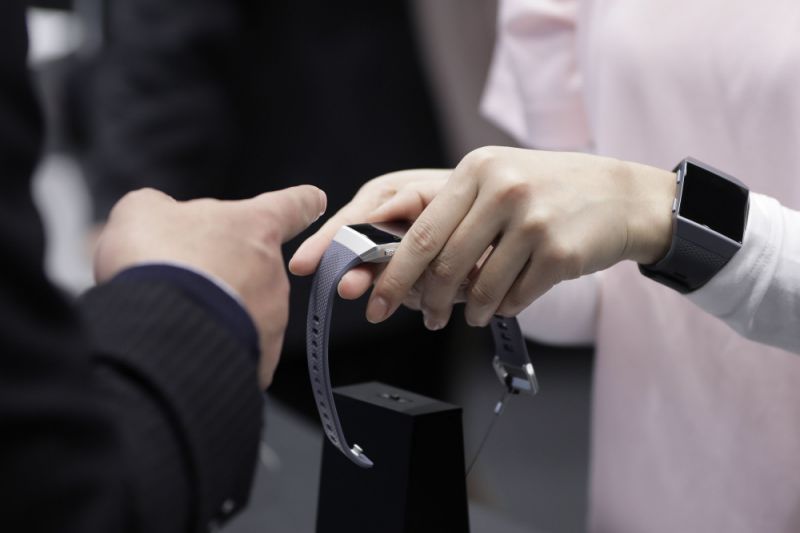
(Bloomberg) — Fitbit Inc., soon to be acquired by Google, says it’s shifting manufacturing operations out of China for its health trackers and smartwatches to avoid U.S. tariffs. But until then, it wants relief from President Donald Trump’s duties.
The smartwatch maker has filed a request for an exclusion on the 15% duty that took effect Sept. 1 on its wrist-wearable communications devices, saying that while its goal is to eliminate the use of Chinese manufacturers, it “respectfully requests” a tariff waiver for its smartwatches and fitness trackers now imported from China.
The duties will allow Chinese firms such as Huawei Technologies Co. to gain U.S. market share while helping China’s data-collection and surveillance aims, the firm said.
“Tariffs that place U.S. brands like Fitbit at a disadvantage relative to Chinese competitors in the U.S. market will only further these objectives,” the company said in its exclusion request, which was posted online Oct. 31. The Office of the U.S. Trade Representative will make the determination.
The request for a tariff waiver was posted a day before before Fitbit announced that Alphabet Inc.’s Google had agreed to buy the wearable device maker for $2.1 billion in cash, a move that could shore up the internet giant’s hardware business while also potentially increasing antitrust scrutiny.
Exclusion Criteria
A message seeking comment was left with Fitbit outside of normal business hours.
Exclusion decisions are based on whether a product is available only from China, is strategically important or related to Chinese industrial programs, and whether duties will “cause severe economic harm” to the company or U.S. interests.
Fitbit said the vast majority of global production capacity for wrist-wearable communications devices is in China, and that while it’s aware of facilities in Taiwan and South Korea producing such devices, they’re fully owned by or contracted to competitors.
Fitbit said last month it’s moving manufacturing operations out of China and that starting in January, the firm expects its smartwatches and health trackers won’t be of Chinese origin and therefore not subject to import duties.
Supply Chains
In its exclusion request, Fitbit said it understands the Trump administration’s concerns about trade with China and “has taken significant steps to overhaul its supply chain and minimize its reliance on Chinese component suppliers and contract manufacturers.” It said those efforts are continuing.
“Fitbit has taken these steps in response to the Administration’s concerns, despite the costs and challenges of uprooting an established global supply chain that has been developed meticulously over more than a decade,” the company said.
The U.S. is accepting requests through Jan. 31 for exclusions from the latest round of tariffs on about $110 billion in Chinese imports, as the Trump administration seeks to negotiate a trade deal with China. Duties are also in effect on $250 billion in other Chinese goods, and a separate batch of about $160 billion in products is set to be hit with tariffs on Dec. 15 if a deal isn’t struck.
Trump is looking to sign a “phase one” agreement with Chinese President Xi Jinping this month, and the president said Sunday he expects the initial deal will be signed somewhere in the U.S.
Among the first companies to file exclusion requests for the latest round of duties besides Fitbit are Apple Inc., which is seeking relief from duties on the Apple Watch, iMac, parts for the iPhone and other components, Christie’s for certain imported art and antiques, and Square, Inc.
To contact the reporter on this story: Mark Niquette in Columbus at [email protected]
To contact the editors responsible for this story: Sara Forden at [email protected], Ros Krasny, Steve Geimann
<p class="canvas-atom canvas-text Mb(1.0em) Mb(0)–sm Mt(0.8em)–sm" type="text" content="For more articles like this, please visit us at bloomberg.com” data-reactid=”36″>For more articles like this, please visit us at bloomberg.com
©2019 Bloomberg L.P.












